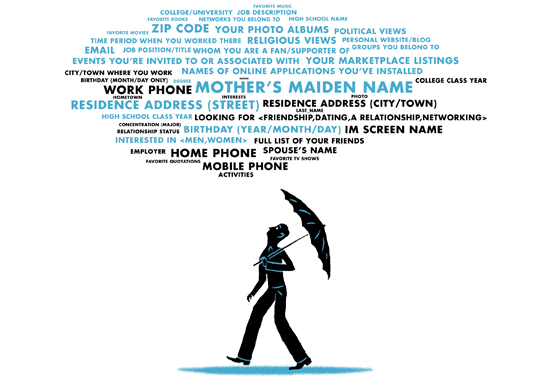 Over at the Blog Herald, Chris Garrett says that Twitter is changing his news consumption habits.
Over at the Blog Herald, Chris Garrett says that Twitter is changing his news consumption habits.
How do you get your news? In the past I have variously read newspapers, watched TV news bulletins, read news.bbc.co.uk and obviously more recently sites such as Digg. Now it seems I get most of my news from Twitter.
Twitter: The Upside and the Downside
Three days ago, Heath Ledger passed away. The actor was found dead in his apartment. He was 28. As more and more people discovered the news of the actor’s passing, Twitter was inundated with news links and statements of surprise. If you were using Twitter at that time that his death was announced in media outlets, you knew that Ledger had died. It was impossible to ignore it with the hundreds of Tweets that were filled with emotions over the talented young man’s death.
If you use Twitter regularly, you’d see that it wins as a social news site that provides instantaneous news — at least of that caliber. As Chris Garrett explains in his post, if you follow numerous feed bots, you can get the news all the time. The issue, of course, is engagement. If you’re not actively engaged, the news won’t come at you. It’s like any other news medium. If you’re not watching the television, you’ll find out the news later.
The downside, however, is that Twitter has a lot more than just news. Maki explains that there are 17 ways you can use Twitter. News consumption, of course, is just one of the things Twitter is used for. Twitter is also a tool to get feedback, to network, to take notes, to market your product, to communicate with customers, to set up meetings, and to find prospects — among other things. If you rely on Twitter for the sake of news and only news, you might miss out on newsworthy materials with all the other chatter going on. I just took a quick glance at my Twitter home page. Of the twenty items displayed (all posted within the past 9 minutes), eight were chats to specific people (@username). Three users shared posts that they wrote with their followers. One asked about dinner plans. Another provided his phone number to the world to see. A third person talked about her children. A fourth said goodnight to everyone. With the constant flow of information on Twitter, it’s certainly possible to miss out on newsworthy items.
Digg: Newsworthy, Informational, and Funny
Chris also mentions that he has used Digg as a news source. The story announcing Heath Ledger’s death was made popular with 13 minutes of submission to the social news site. Twenty-two minutes after it hit the front page, it sat at 2099 Diggs. Seven minutes after that, it had 2661 Diggs. A day later, it had over nineteen-thousand Diggs. (A regular Digg user would consider this a record of some sort.)
The right news will hit the front page of Digg quickly. If it impacts enough people, it will rise to the top. The downside of this, of course, is that social news is dictated by the wisdom of the crowds, and enough people need to deem it newsworthy to actually be considered news.
I’ve acknowledged in the past that I use Digg to satisfy a thirst for knowledge, and that hasn’t changed. Digg provides the kinds of news I seek: technology related news, celebrity gossip, and more. But beyond that, Digg has its share of funny pictures and informational articles. That’s why I like Digg as a “social news” site. As previously stated, users in the social news sphere find what’s newsworthy (e.g. Heath Ledger’s passing, Apple’s Q1 Earnings, and information about the RIAA’s plans to incur extra costs for students), but I enjoy the pictures (like this funny one or this beautiful nature scene) and the feel-good articles (20 Pictures of “Flat Pack” Urban Furniture, 60 Elegant and Visually Appealing Designs, and 5 Exercises You Probably Aren’t Doing). Digg is an amalgamation of interesting articles that the populous votes upon. As such, not all “news” (at least, as defined by each individual person) will become front page material, but that’s not to say that Digg doesn’t provide timely information. It’s just mixed with other stories, but in comparison to Twitter, it’s not as noisy.
StumbleUpon: The Funny, the Informational, but Not So Newsy
StumbleUpon is probably the last social site that I’d consider going for “news” — at least not for “current events.” Touted as more of a “content discovery” engine than a news engine, StumbleUpon lets you discover news, but not necessarily in a timely manner. For example, just the other day I stumbled upon an Apple press release from 2003. Sorry, guys, it’s five years later. That’s not so much “news” anymore.
StumbleUpon is still a great tool that I use almost equally as often as I use Digg and Twitter. The service provides you with interesting information as frequently as you choose to consume it. And that differentiates StumbleUpon from the other social “news” networks. As I pointed out in a recent Problogger post, Digg is not so much of a “social bookmarking” site, but StumbleUpon certainly is. Because the information I find on StumbleUpon is typically timeless and more referential rather than content that shows up on Digg or Twitter, I make sure to tag StumbleUpon pages and review those that I want to look back on. Then I can just go back to my StumbleUpon page and refer to the notes I left there for a reminder of what I’ve seen and why I liked it.
The Blog Covers Everything Else
Whether you’re looking at serious announcements, humorous anecdotes, or breaking news, the blog fits the category that still accommodates any audience, whether the microblogger who prefers Twitter or the media snacker who goes with Digg or StumbleUpon for their daily dose of information. In Wednesday’s post, I stated that blogging is a form of social media that should not be ignored. That’s because it encompasses everything readers seek and more.
Conclusion
Can I make the claim that I get my news from one source? Definitely not. Twitter, which started off as a site where you shared what you are doing, has emerged into a useful site where sharing news is only a small part of what you’re doing. (You’re usually typing about other things.) Digg’s news is voted upon by its users, so it’s possible that some news items are neglected. StumbleUpon just doesn’t work as a news site, since bookmarking is its game. Using one or two of these methods may work in getting your news, but I’d say that a healthy combination of blogs and these social networks ends up giving me what I want. I simply cannot give any of these up in favor of another.





I think what you meant to say is that everyone should just join vois.com and use it for everything!
I haven’t picked up a paper or turned on the TV for my news for about a year now. Even when I used to – I had pretty much seen/heard everything they were talking about the day before. Oh what a brave new Twitter world we live in ๐
-Dave
It seems the social networks online, more than ever, mirror the way the offline world functions, in essence. You catch a headline on the radio news on your way out the door, overhear a few words in the lunch line, scan a newspaper after work, watch a 30-second bite on the late-night tv news — but all of that adds up to no more than facts. Our engagement with the large or smalll happenings in our world only comes when we start to talk with others about what those events mean, and to share our reactions. That’s why there’s room for many different means of communication, still — but it’s hard to imagine any source being faster than Twitter, except perhaps the gossip grapevine back in the day of multi-party phone lines!
@ Wingnut: Yes very true, I haven’t either. However there are some cases that you want to catch something live. For example just a couple of hours ago, I wanted to catch Obama’s SC victory speech, I tuned in too CNN…But then again, there is probably a live streaming service streaming the speech I didn’t know about ๐
I use Twitter to stay on top of current events and to enlist the help of folks. So, regarding consumption, I use Twitter all the time to stay current and be current.
In this way, it is Pull. I also use Twitter to encourage others to Digg and Stumble my own material. In this sense, it is Push. I sort of use Digg this way too. I do not use Stumble this way; consumption, or Pull, only.
Tamar, what are your thoughts on the other large Digg-like sites? Do you think Reddit, Propeller, etc. are just another mix of the same “Newsworthy, Informational, and Funny” or are they inherently different?
Guy: I was talking more about the indispensable sites in my experience. I like Reddit a lot but I don’t think it affords the same kind of information that Digg has (the latter being more tech-centric, and the former being more political/philosophical, and those are both areas that are not as interesting to me). Propeller is in a league of its own, in my opinion. It’s neither here nor there. It certainly isn’t driving traffic to sites in the same way Digg or Reddit does, and I don’t think that I can put it in a “top tier” social news networking category (since it just isn’t as heavily trafficked as the other two). That’s just my personal take, though. You certainly don’t hear (at least in my experience) about people using Propeller as much as the other two social news sites.
Hey, Tamar.
Love this post. I included it in a post on my blog at http://www.davidchivers.com.
Thanks,
David
The name of this site is Twitter, so shouldn’t Tweets really be called Twits? ๐
Steve, I used to call it Twits, but more and more people are starting to call it Tweets. I think the latter term is friendlier, don’t you? ๐
Social networking is acting like a mirror now , people now feel no need to read newspapers daily or watch T.V. daily.
Hi Tamar, I just discovered your blog through a Tweet. Lots of interesting stuff. I noticed that you never mention Diigo. It’s not even on your list of social media. Why? I found it more convenient for saving interesting links than going through the lengthy Digg procedure.
Hi Jutta,
Good question, but let’s back up and consider when I wrote this post (January 2008) ๐ I didn’t use Diigo in January ’08 nor does it really meet the criteria required of this post (it’s not THAT heavily used to actually fit the bill for news consumption and I’m not sure I’d have much positive things to say about it for the purposes of this post — Diigo simply isn’t used heavily to warrant a mention in this capacity, and it *certainly* wasn’t used that often in January ’08 either. Let me pose a question: were YOU using Diigo 14 months ago? ๐ )
As far as the list of social media, though, good point. I’ll have to add it. I have no idea why it was overlooked.
Also, one final point: Digg and Diigo are *completely* different beasts. Digg is social news; Diigo is social bookmarking (which is lumped in with delicious). I honestly couldn’t say much about delicious in this type of blog post either — it just didn’t fit for the type of picture I was trying to paint. The idea was more about realtime news, and social bookmarking, in my eyes, fits better for referential pieces but not necessarily timely pieces. That’s why I talk about how StumbleUpon doesn’t quite work for me (and yes, SU is more of a social bookmarking beast than a social news one).
Hope that clarifies where I’m coming from! ๐
Thank you so much for your detailed answer despite my ignorance. I did not realize that Digg did not fall in the same category. I thought the similar names were intentional. And yes, you are right, I was not using Diigo that long ago. Actually, I referred to all your blog posts, because I did a search, not just to this post (which you could not know). ๐